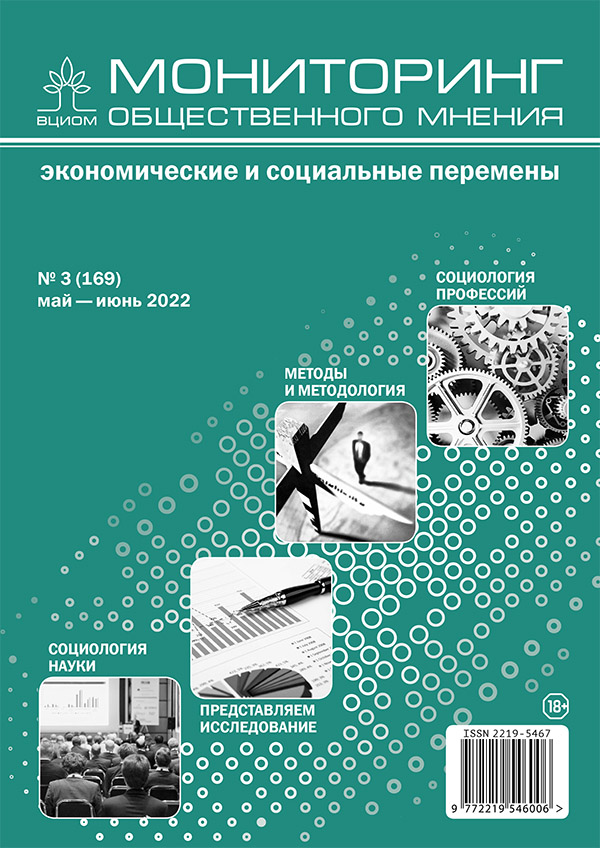Online Communities of Labor Migrants to Russia and South Korea as Interaction Ritual Chains
DOI:
https://doi.org/10.14515/monitoring.2022.3.1961Keywords:
online communities, labor migration to Russia, labor migration to the Republic of Korea, interaction ritual chains, group symbolsAbstract
The paper attempts to redefine the term “community” concerning research on online interactions of transnational migrants. Today virtual social networks allow the creation of groups that unite people with common interests who may not necessarily be acquainted with each other. The metaphor of “community” is widely used in the research literature. However, is it valid when we study online phenomena? Are online groups communities? What are the mechanisms that ensure users’ activities? To answer these questions, the author conducts a conceptual analysis of anthropological and sociological theoretical models of community. As a result, the concept is defined as the condition of maximum group solidarization that occurs in focused collective interaction rituals. The theoretical and methodological foundation of the paper is the interaction ritual chains theory developed by Randall Collins. Successful rituals facilitate the production and/or reproduction of group identity symbols and emotional energy (i.e., readiness to engage in similar interactions). Chains of successful rituals are the key mechanism underlying sustainable group activity. The author applies this conceptualization to the study of two Facebook groups of labor migrants from CIS countries in South Korea and from Central Asia in Russia. The analysis shows that the reproduction of online groups’ activities is largely based on emotionally charged symbols, even if most messages are concentrated around purely instrumental goals (such as job search). At the same time, differences in cultural capital could prevent the emergence of group solidarity even if participants share common emotions towards the same object of attention.
Acknowledgments. We thank Polina Antonova, Anastasia Babikova, Elizaveta Kucherova, Anastasia Lapteva, Daria Yudina, and Natalya Tregubova for valuable comments on the first drafts of the paper and for their assistance in data collection.
Downloads
Published
How to Cite
Issue
Section
License
Copyright (c) 2022 Monitoring of Public Opinion: Economic and Social Changes Journal (Public Opinion Monitoring) ISSN 2219-5467

This work is licensed under a Creative Commons Attribution-NonCommercial-ShareAlike 4.0 International License.






